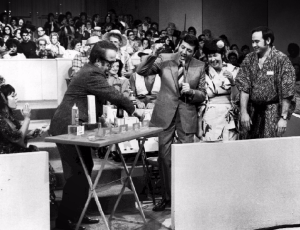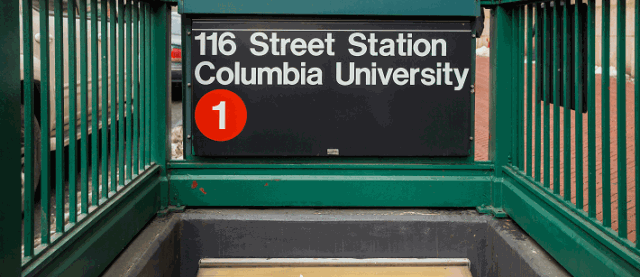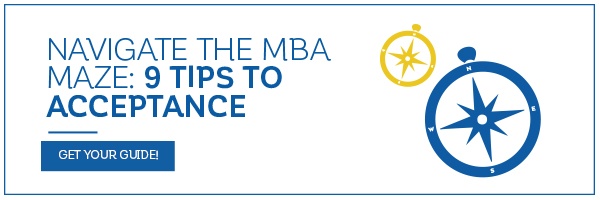Events & Promotions
|
|

GMAT Club Daily Prep
Thank you for using the timer - this advanced tool can estimate your performance and suggest more practice questions. We have subscribed you to Daily Prep Questions via email.
Customized
for You
Track
Your Progress
Practice
Pays
Not interested in getting valuable practice questions and articles delivered to your email? No problem, unsubscribe here.
- Nov 20
07:30 AM PST
-08:30 AM PST
Learn what truly sets the UC Riverside MBA apart and how it helps in your professional growth
Kudos
Bookmarks

By Adam Hoff, Amerasia Consulting Group
Today's blog post is about negotiating your offer of admission ... except that it's not. Because "negotiation" is not what you do when it comes to securing more financial aid from a business school. The term of art for what you are going to be doing is "asking." Let us explain. Obviously, any discussion of an offer in this context automatically means we're dealing with some good news: you've been accepted. So congrats on that! However, with the news that a b-school wants you to enroll comes the sobering reality that they also want you to *pay* for that privilege. Sure, offers often come with dollar signs attached, but the amount left in the "you" column is almost always going to be the bigger number. And that fact tends to bring up the following question: "How can I negotiate my offer?"
Again, let's rephrase the question entirely. Don't think of this as a negotiation, but rather a request: "How can I request more aid?" That is a much better frame of reference, especially in light of the the advice that follows. Here's how we typically approach this process:
1. Be respectful. There are a lot of ways you might be able to get a little more scholarship money from a business school, but we know of one sure way that you WON'T get money and that's if you try to "hardball" them. We have witnessed countless admits go from months of wishing and hoping to sudden arrogance and a "you better wine and dine me" attitude. Ditch it. Immediately. If you call an admissions office and try to leverage another offer or you give them the "so what can you do to sweeten the deal?" treatment, you will inevitably find yourself on the line with a tired and supremely annoyed member of that school's staff. Go in polite, grateful, and professional. Always. This is not an M&A deal and you are not "negotiating" with anyone. You are "asking" a business school to grant you more free funding. Big difference and on that is not lost on the schools themselves, we assure you.
2. Instead, go for the heartstrings. Okay, you have your hat in hand and you are determined to avoid acting entitled. Now what? Not to be too blunt about it, but in our experience, a good old sob story seems to work best. So if you have authentic hurdles - and most of us do - to paying over $100Kfor your MBA, share them. You don't have to impress anyone at this point with your huge salary or countless offers from heavy hitters; they've already decided they want you to attend their school. And they are far more likely to try to work something out if they find you nice, respectful, and, yes, a bit needy. A long-term career goal that eschews riches is probably best, but there are a lot of ways you can be honest about your situation and paint a very realistic picture as to how an extra $20K could make all the difference for you.
3. Never lie! If you don't have the "heartstrings" story, then don't go there. Of even greater importance is that you don't make up offers or dollar amounts from other programs. It damages the integrity of the financial aid process (which is designed to get money to those who deserve it and who need it most) and the school may ask to see proof in making a decision on revising your award.
4. Wait a beat. One of the keys to even getting yourself in the running for more aid is to wait a little bit so the dust can settle. Sure, on the one hand, the money could be gone and the class full and the school might have no incentive to sweeten the offer. I've heard people worry that if they wait, this scenario could result. And they are right - it totally could. But here's the dirty secret ... they alwaysspend all the money! When decisions go out, they throw out all the scholarship awards with them, hoping to entice and bring in the necessary yield. It is only when people start turning down offers - and scholarship awards - that the directors and staff start to see where there might be A) enrollment needs and B) financial aid surplus. In other words, if Booth gave you a $20K scholarship last week, don't call *this* week hoping for more. They won't have any more - at least not on paper. That spreadsheet is going to show every dollar spent. Wait for people to turn them down and for some of that paper money to flow back into the Booth coffers. Doing so will give you a better chance at there even being something to ask for, let alone get. Plus, while this isn't necessarily likely, if you wait, you might also catch a school getting shorted a bit on enrollment, in which case they will be far more likely to help you meet your needs. (Think of what is better for a program - going to the waitlist and thereby increasing their "admitted student" number in the process, or getting a 1-for-1 right off the existing list by spending a bit more money. It's a no-brainer.)
5. Follow up. If you talk to someone and they say they will get into it (most likely scenario other than "sorry" is "let me get back to you" ... "here's more money!" is a distant third), don't be afraid to follow up. The squeaky wheel can get the grease given that an admissions office is like a battlefield this time of year - it's not crazy that your request might land on someone's desk for a full week. In that time, hundreds of thousands of dollars might funnel back and forth on paper, leaving you in the cold. So wait a day or two and then call back to ask - respectfully, of course - if there has been any progress and if there is anything else you can or should do. As long as you are really nice and polite about it, no one is going to fault you for being angst-ridden about your financial future. And we should add here - since people seem to worry about it - you are not going to lose your offer by calling about this stuff.
We hope that these hints help you navigate that latest stress in this process. Remember that you catch more flies with honey, honesty in the best policy, and patience is a virtue. Armed with a few cliches, you'll do great.
Archived CBS Discussion
Hi there,
You've stumbled upon an old discussion from our CBS Forum
that's now outdated and has been archived. No more replies are possible here.
Interested in current discussions? Feel free to dive into our dedicated CBS Forum
for all fresh things related to the CBS MBA program.
Thank you for understanding, and happy exploring!
Kudos
Bookmarks

By Adam Hoff, Amerasia Consulting Group
As we move through the winter months and host calls with b-school candidates for the upcoming cycle, it's interesting to note that some admissions questions come up a lot more this time of year than they do later. We are going to try to use that as a cue to address these types of issues and concerns here on the blog - and we are starting with a very common question this far out from the process, which is "what round should I apply in?"
THE ANSWER TO THIS QUESTION DEPENDS LARGELY ON THREE FACTORS: [/b]
- Level of readiness (will you have everything done by Round 1, will have you time to put forward your best effort, are there any post-Round 1 events that would strengthen your case such that you should wait)
- Which schools you are applying to
- Your level of desire to keep your entire process "in lockstep" (having all your deadlines, interviews, decisions, etc. take place around the same time)
WITH THAT OUT OF THE WAY, HOW DO SCHOOLS PLAY A ROLE IN ALL THIS?
Basically, you want to think about the schools as belonging to three groups: "Round 1 is better", "Round 2 (possibly) is better", and "It doesn't matter."
ROUND 1 IS BETTER
In my opinion, there are five schools where it is better to apply to the earliest round (technically, we've been using "Round 1" but what this means is basically the earliest deadline). They are:
- Columbia Business School Early Decision Duke Fuqua Early Decision
- Dartmouth Tuck Early Action (Decision)
- MIT Sloan Round 1
- Stanford GSB Round 1
Stanford GSB is the one where it's more nuanced. Because Stanford uses a more curatorial approach to building a class (think of most schools as customs agents stamping a long line of passports, whereas Stanford GSB is someone putting a seating chart together for a wedding reception), it follows that you want to be seen earlier in the process rather than later. This is because you run a larger risk of them already have people "like you" from Round 1 if you wait. We're obviously talking about the margins here, given the school's obscenely low acceptance rate, but then again, winning on the margins is often the key.
ROUND 2 IS (POSSIBLY) BETTER
- HBS
- EU Schools
With HBS, this take is a little more unique, but I actually believe you have a slight advantage waiting for Rd 2. I wrote about Rd 2 in general here (https://www.amerasiaconsulting.com/blog/2015/7/15/looking-for-an-mba-advantage-consider-round-2), but will quote the relevant part about HBS:
"Display of confidence. I have seen more HBS clients of mine get in during Round 2 the last few years, honestly, and I think it's in part because it shows a really assured attitude. It's almost "I don't need to scramble around like a maniac for your increasingly, insanely early deadline. I'll lay back. I'm good." And I truly believe that confidence gets rewarded. Again, I can't prove it, so I'm not going to tell all of my HBS clients to NOT apply Round 1 ... but I truly think they might have a slightly better chance if they wait."
The idea here is that as HBS continues to test how confident and self-possessed the applicants are, the more merit there is to possibly waiting. You can let all your Type A peers rush to meet a deadline that gets earlier every year, while you hang back and show a little more confidence that your abilities and accomplishments are more than enough to carry the day. It's once again a battle on the margins, but as with GSB, that can make a difference.
IT DOESN'T MATTER
All the other schools. Seriously, you will hear them say Round 1 is better if you go to an information session before Round 1, but that is to drive applications. If you go to the same session you will hear a new spin saying how Round 2 is just as good. At every other top school in the world - I have seen no evidence (statistical or anecdotal) that there is a difference between Round 1 and Round 2.
So ... "If I am applying to Stanford AND HBS, what should I do?"
You should apply Round 1. Unless you are someone okay with spreading out your process and using multiple rounds (which means doubling the length of this ordeal, having two waves of interviews, having competing enrollment deadlines, etc.), you are going to want to apply to your schools in lockstep. And, to me, the upside of of applying Round 1 to GSB is much higher than applying to Rd 2 to HBS.
FINAL THOUGHT
It goes without saying, but we will say it anyway, that you need to apply with the best possible application. If you submit something mechanical or shoddy or lacking depth or that fails to connect with program DNA, it won't matter which round you apply.
No matter the round, we have helped more than 1000 clients successfully apply to top business schools worldwide since 2008. Let us help you figure out your next step. Schedule a complimentary, one-hour consultation with a member of our expert admissions team. Email us at mba@amerasiaconsulting.com or visit us online at www.amerasiaconsulting.com/contact.
Kudos
Bookmarks

“Focusing on creating flexible, adept leaders is critical for business schools to continue attracting top talent,” says Glenn Hubbard, Dean of Columbia Business School. This underlying sentiment will serve as the foundation for a landmark discussion between the deans of the nation’s top business schools as they come together to address critical questions about the future of management education.
“My fellow panelists are all esteemed leaders in the field, and I am hopeful we will bring forward innovative approaches to bridging theory and practice in the curriculums, experiences, and ideas we offer students,” Hubbard adds.
The panel, entitled “What’s Next in Management Education,” is one of three to be held during Columbia Business School’s Centennial Symposium on May 2nd.
Jan Hopkins, former anchor and correspondent for CNN and owner of the Jan Hopkins Group, will moderate the conversation, which will feature deans from the business schools of Harvard, Stanford, Wharton and Columbia and address critical issues such as:
- Will the MBA degree continue to be valued in the future?
- How can business schools evolve to meet the demands of a changing economy?
- What are the challenges and opportunities facing today’s MBA programs?
As one of the premier events of Columbia Business School’s centennial celebration, this Symposium will commemorate the school’s landmark achievements in key areas of business over the past century, while challenging thought leaders in management education to look to the future and examine the major forces that will impact business in the years ahead.
Photo Credit: Paul Warchol
***
If you are looking for guidance on your MBA application, Stacy Blackman Consulting can help with hourly and comprehensive consulting services. Contact us to learn more. Visit the website for Stacy Blackman Reviews, and check out the company’s e-publications for more in depth school-by-school guidance.


























